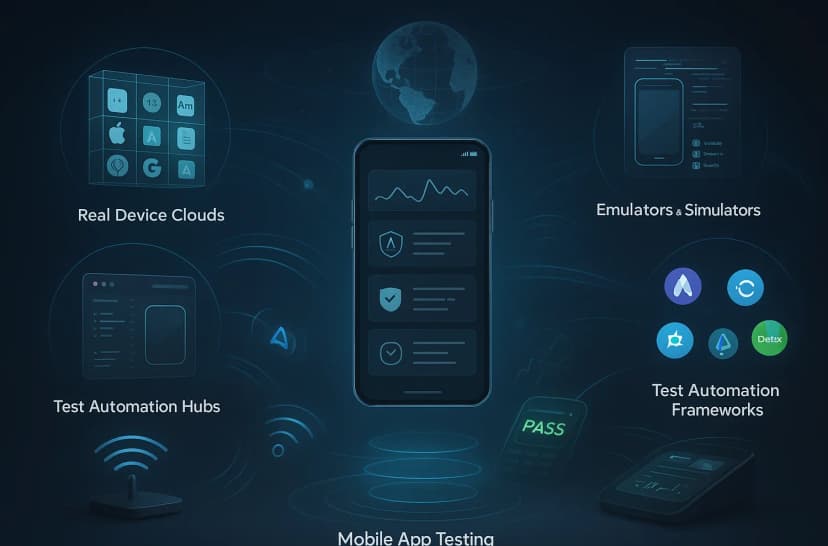Hello there, fellow app enthusiast! So, you've developed a killer mobile app. It's sleek, it's functional, and you can't wait to unleash it upon the world. But wait—before you do that, there's a little thing called mobile app testing that you need to consider. Testing ensures your app runs smoothly across all devices and platforms, saving you from the embarrassment of crashes and bugs. In this post, we'll walk you through the main platforms used in mobile app testing services, with a sprinkle of humour and a dash of technical insight.
Android Testing: The Wild West of Devices
Android, oh Android! With its multitude of devices and versions, testing an Android app can feel like herding cats. But fear not! There are excellent tools out there to help you tame this Wild West:
- Espresso: Google's own testing framework, Espresso, is designed to be fast and reliable. It helps you write concise and readable UI tests, making sure your app performs well on various Android versions.
- Robotium: Think of Robotium as the Swiss Army knife for Android testing. It’s a robust tool that allows you to write powerful and flexible tests, making it easier to automate black-box tests.
Want to dive deeper into mobile app testing? Check out our comprehensive Mobile Application Testing Services.
iOS Testing: The Cult of Consistency
Ah, iOS. The land of uniformity. Testing for iOS might seem straightforward thanks to the limited number of devices compared to Android, but it has its own set of challenges:
- XCTest: Apple's very own testing framework. If you're an iOS developer, this is your go-to tool for unit tests, performance tests, and UI tests. It's deeply integrated into Xcode, making it a seamless choice.
- Appium: Appium is the darling of cross-platform testers. It supports both iOS and Android, allowing you to reuse your code across multiple platforms. If you like the idea of "write once, test everywhere," Appium is your friend.
Curious about our other testing services? Have a look at our Automation Testing Services.
Cross-Platform Testing: The Best of Both Worlds
For those who want their cake and eat it too, cross-platform testing frameworks are a blessing. These tools help you test your app on both Android and iOS without rewriting your tests from scratch:
- Flutter: Google’s open-source UI software development kit (SDK) for crafting natively compiled applications for mobile. Testing in Flutter is a breeze with its comprehensive set of testing features, including unit, widget, and integration tests.
- React Native Testing Library: This library makes it easy to test React Native components, ensuring your app’s UI behaves as expected across different devices.
Still, wondering if manual testing has a place in this automated world? Find out more about our Manual Testing services.
Wrapping It Up
So there you have it—an overview of the main platforms used in mobile app testing services. Whether you're battling the Android device jungle, enjoying the uniformity of iOS, or aiming for cross-platform supremacy, there's a tool out there to help you ensure your app is flawless. Remember, a well-tested app is a happy app, and a happy app means happy users!
About Jayesh Mistry
Expert in Mobile Application Testing with years of experience in software testing and quality assurance.
Found this article helpful?
Share it with your team!
